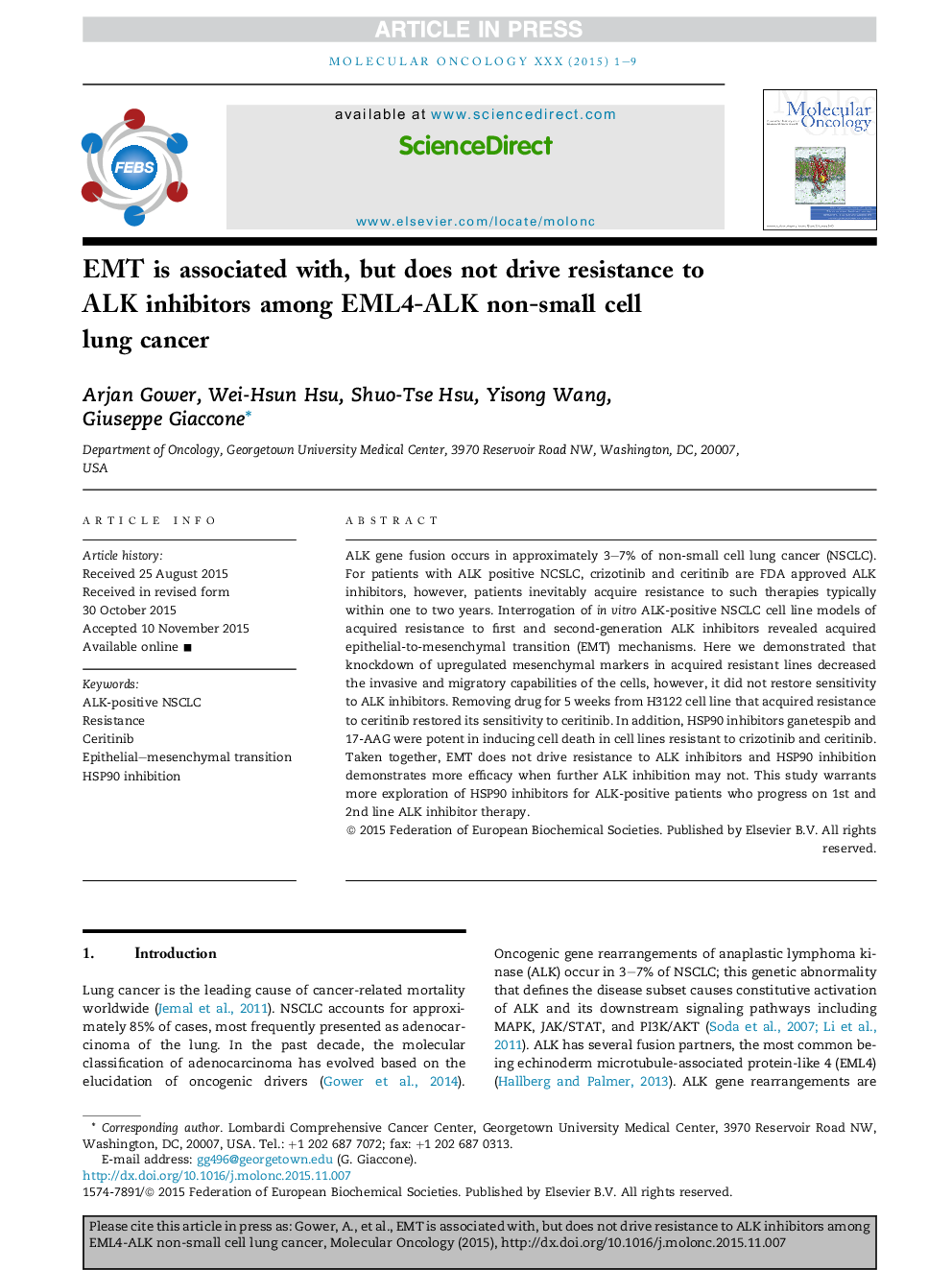| کد مقاله | کد نشریه | سال انتشار | مقاله انگلیسی | نسخه تمام متن |
|---|---|---|---|---|
| 10914566 | 1088794 | 2016 | 9 صفحه PDF | دانلود رایگان |
عنوان انگلیسی مقاله ISI
EMT is associated with, but does not drive resistance to ALK inhibitors among EML4-ALK non-small cell lung cancer
دانلود مقاله + سفارش ترجمه
دانلود مقاله ISI انگلیسی
رایگان برای ایرانیان
کلمات کلیدی
موضوعات مرتبط
علوم زیستی و بیوفناوری
بیوشیمی، ژنتیک و زیست شناسی مولکولی
تحقیقات سرطان
پیش نمایش صفحه اول مقاله

چکیده انگلیسی
ALK gene fusion occurs in approximately 3-7% of non-small cell lung cancer (NSCLC). For patients with ALK positive NCSLC, crizotinib and ceritinib are FDA approved ALK inhibitors, however, patients inevitably acquire resistance to such therapies typically within one to two years. Interrogation of in vitro ALK-positive NSCLC cell line models of acquired resistance to first and second-generation ALK inhibitors revealed acquired epithelial-to-mesenchymal transition (EMT) mechanisms. Here we demonstrated that knockdown of upregulated mesenchymal markers in acquired resistant lines decreased the invasive and migratory capabilities of the cells, however, it did not restore sensitivity to ALK inhibitors. Removing drug for 5 weeks from H3122 cell line that acquired resistance to ceritinib restored its sensitivity to ceritinib. In addition, HSP90 inhibitors ganetespib and 17-AAG were potent in inducing cell death in cell lines resistant to crizotinib and ceritinib. Taken together, EMT does not drive resistance to ALK inhibitors and HSP90 inhibition demonstrates more efficacy when further ALK inhibition may not. This study warrants more exploration of HSP90 inhibitors for ALK-positive patients who progress on 1st and 2nd line ALK inhibitor therapy.
ناشر
Database: Elsevier - ScienceDirect (ساینس دایرکت)
Journal: Molecular Oncology - Volume 10, Issue 4, April 2016, Pages 601-609
Journal: Molecular Oncology - Volume 10, Issue 4, April 2016, Pages 601-609
نویسندگان
Arjan Gower, Wei-Hsun Hsu, Shuo-Tse Hsu, Yisong Wang, Giuseppe Giaccone,